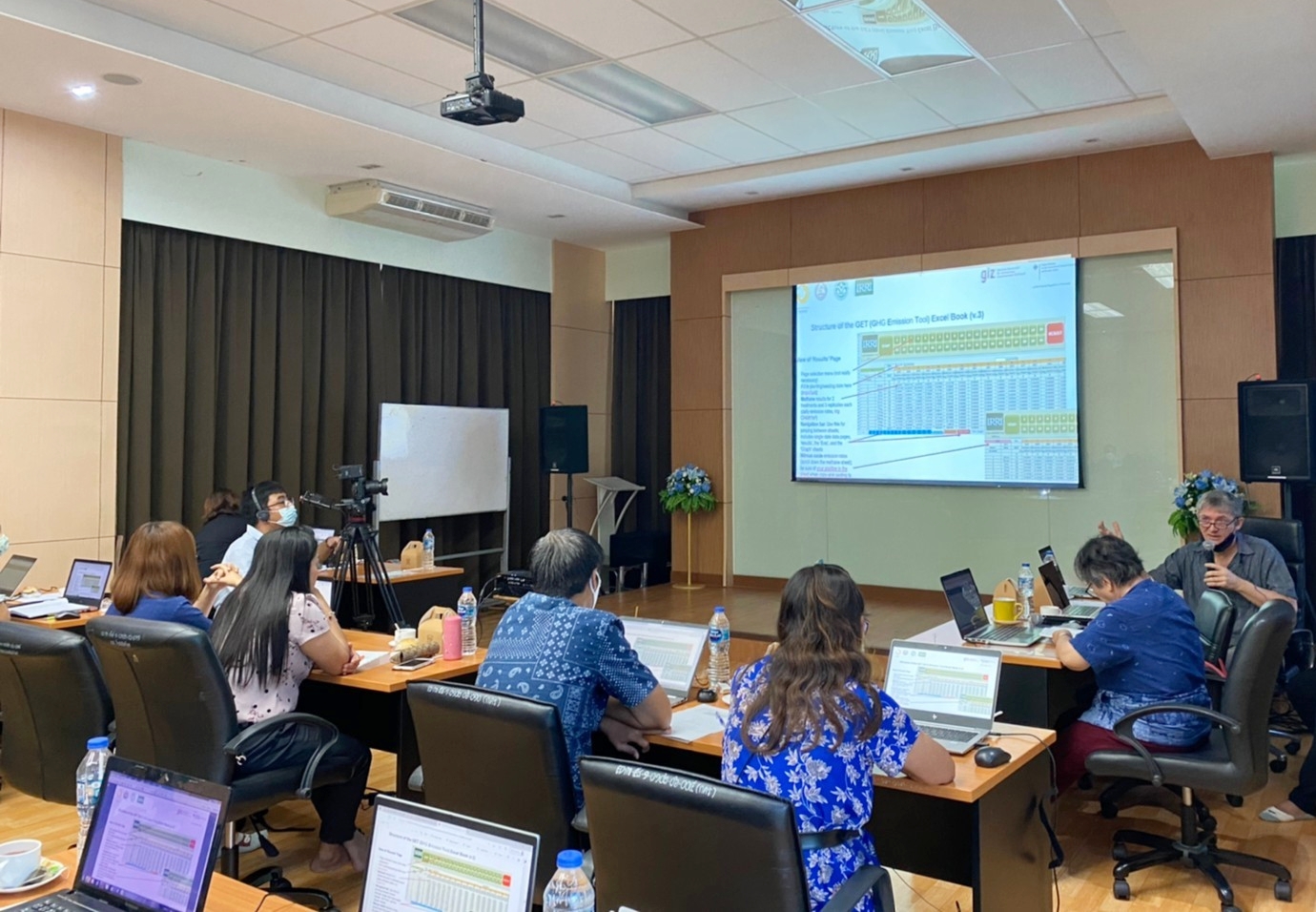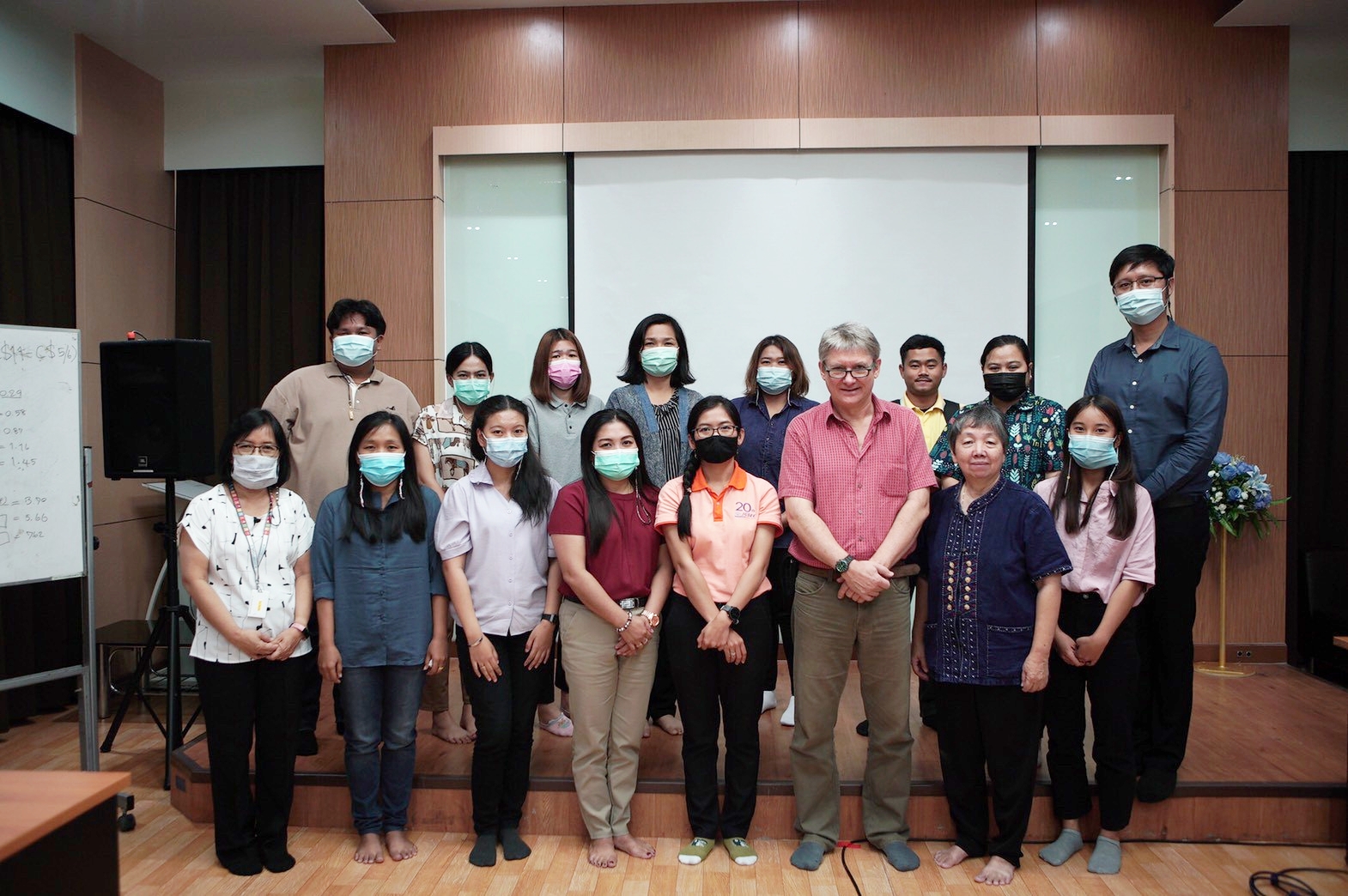The Thai Rice Department and the Thai German Climate Programme – Agriculture (TGCP-Agriculture) recently wrapped up online training on evaluating greenhouse gas (GHG) emissions following the so-called “Measurement, Reporting and Verification” (MRV) framework.
A total of 17 research officers from the central Rice Department and provincial research centres in Ayutthaya, Chainat, Pathum Thani, Suphanburi, Prachinburi and Ubon Ratchathani participated in the two-month online training session designed to enhance their capacities in GHG emission measurement.
Dr Nittaya Cha-un, an academic from the Joint Graduate School of Energy and Environment (JGSEE), King Mongkut’s University of Technology Thonburi, Dr Laddawan Kunnoot from the International Rice Research Institute (IRRI), and Dr Thomas Jaekel from the GIZ Agriculture and Food Cluster led the training and introduced a total of four training modules to the participants.
The training modules are divided into two parts: 1) Calculation of GHG emissions from farmer surveys and 2) Evaluation of gas chromatograph (GC) data from field samples of methane and nitrous oxide emissions in rice fields. These topics are designed to enhance the researchers’ understanding of how to use the related software for the calculation, namely the Source-selective and Emission-adjusted GHG CalculaTOR for Cropland – SECTOR – and GET Excel Sheet, which were developed by the IRRI, as well as how to calculate emission factors (EF) from emission rates and analyse GHG emission data.
Introduced during the 13th Conference of the Parties (COP 13) in Bali, Indonesia, the MRV framework was adopted as the climate change and mitigation solution to transparent tracking of the GHG emission level and its impact at national and international levels.
The MRV framework calls on all sectors to respond to challenges facing GHG emission measurement, information reporting and verifying process.
In Thailand, the Thai Rice Department has been working on climate change topics for over ten years. However, the MRV framework implementation still presents a significant challenge because it requires high transparency and accuracy of GHG emission data. A series of training sessions on measuring GHG emissions in rice production has been undertaken so that researchers and officials in the Rice Department and the related agricultural sectors are equipped with knowledge and skills for generating and compiling information essential for climate mitigation-related activities.
The Thai Rice Department’s nationwide network of 28 rice research centres under the Division of Rice Research and Development has the potential to work on the emerging issue of climate change facing the agricultural sector, particularly in rice farming and production. Their main tasks involve conducting research aimed at increasing the value of rice production while reducing production costs and maintaining rice quality to meet international standards. Just as in other sectors, climate change has become an emerging issue that needs to be urgently addressed.
Since 2018, the TGCP-Agriculture project has been supporting the Rice Department to develop the capacities of research officers at headquarters as well as in provincial rice research centres. Several training modules on GHG emission measurement have been conducted. Learning materials on GHG emission measurement have also been developed to facilitate knowledge transfer for officials in the Rice Department. A handbook on gas sample collection in paddy fields and other multimedia knowledge management materials will also be produced and distributed by November this year.
The training has given positive outcomes, as the researchers can now measure GHG emissions and evaluate the data by themselves. In the next step, they will learn how to interpret the evaluated data and make the report of their own GHG emission measurement. The overall consequence will be an improvement of emission data transparency and accuracy which significantly depends on measurement, reporting and verification processes
“Participating in the MRV training enables me to utilise knowledge on soil research learned at the university for working more effectively. Data collection and reporting on GHG emissions can also be conducted more systematically,” said Kanoknop Klinla-or, a researcher from the Division of Rice Research and Development. Thanks to the training, he and his colleagues are ready to conduct a report on GHG emissions. Such a report can also serve as a guide to data collection on GHG emissions in the long run.


